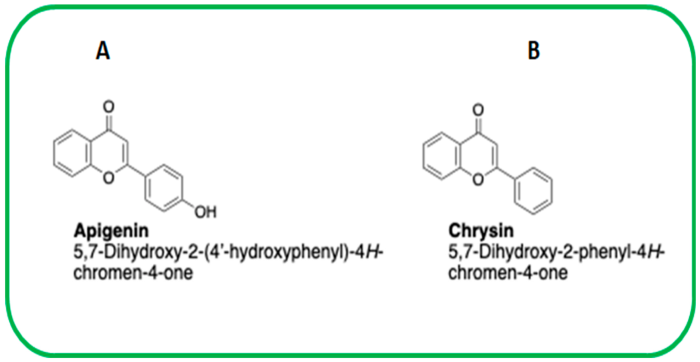Exegenesis Bio Receives Orphan Drug Designation for EXG110 to Treat Fabry Disease
Exegenesis Bio, a clinical-stage global gene therapy company, has announced that the U.S. Food and Drug Administration (FDA) has granted Orphan Drug Designation (ODD) to EXG110, an innovative gene therapy for Fabry disease. This rare lysosomal disorder results in the excessive accumulation of lipids in various tissues, leading to severe health complications such as renal failure, cardiac disease, and strokes. EXG110, a one-time treatment, aims to deliver the genetic payload directly to liver and heart cells, offering improved efficacy, safety, and dosing protocols. The company has already initiated a clinical trial in China, with plans for a U.S.-based trial to follow.
The Orphan Drug Designation is awarded by the FDA to encourage the development of drugs intended for the treatment of rare diseases affecting fewer than 200,000 individuals in the United States. This status provides several incentives, including tax credits for clinical trials, exemptions from user fees, and the potential for seven years of market exclusivity upon FDA approval.
In a statement, Dr. Zhenhua Wu, CEO of Exegenesis Bio, emphasized that the ODD for EXG110 represents a significant step forward in addressing the critical need for more effective treatments for Fabry disease. “This recognition underscores the value of our cutting-edge research and the strong commitment of our team to improving the lives of patients with rare diseases,” said Dr. Wu. EXG110’s progress marks an important milestone for Exegenesis Bio, which has also provided updates on its other clinical programs and gene therapy platforms, such as EXG102/202 for wet Age-Related Macular Degeneration (wAMD) and EMC023, a muscle-specific capsid for targeted gene therapy delivery to muscle diseases.
EXG102, a clinical-stage gene therapy for wAMD, is administered via subretinal injection. A next-generation version of this treatment, EXG202, incorporates a highly specific ocular capsid, allowing for intravitreal injection, a less invasive procedure with improved targeting of retinal cells. Early studies in non-human primates have shown that EXG202 demonstrates 3 to 5 times greater retinal transduction efficiency compared to existing ocular capsids.
The company’s muscle-targeting platform, EMC023, is designed to enhance gene therapy delivery to skeletal muscle, potentially revolutionizing treatments for muscle diseases like Duchenne Muscular Dystrophy (DMD). EMC023 has demonstrated significant improvements in muscle transduction, showing up to a 13-fold increase in transgene mRNA levels in preclinical studies.
With its robust pipeline and advanced in-house capabilities in research, development, manufacturing, and regulatory processes, Exegenesis Bio is positioning itself as a leader in gene therapy for rare and debilitating diseases. The company plans to provide more updates on its programs for Fabry disease, wAMD, spinal muscular atrophy, and its muscle-targeting technology during the JP Morgan Healthcare Conference in January 2025.
Commentary by YourDailyFit columnist Alice Winters

Exegenesis Bio’s announcement regarding the Orphan Drug Designation for EXG110 marks a pivotal moment in the burgeoning field of gene therapy. Fabry disease, with its debilitating long-term effects, has long been a challenge for both patients and researchers. The FDA’s recognition of EXG110 highlights the significant need for more effective, long-term solutions for rare diseases. This development promises to position EXG110 as a promising one-time treatment for Fabry disease, potentially alleviating the burden of chronic therapies and providing a lasting solution for patients suffering from this severe condition.
The strategic focus of Exegenesis Bio on innovative gene delivery systems—such as its highly specific ocular and muscle-targeted capsids—underscores the company’s commitment to advancing gene therapy beyond simple payload delivery. For instance, EXG202’s introduction of a proprietary ocular capsid for non-invasive intravitreal injections could set a new standard for wAMD treatment, making the therapy not only more effective but also significantly less invasive. The non-surgical approach to retinal disease treatment could appeal to patients who may be wary of traditional surgical interventions, expanding the therapeutic reach of EXG202.
Further, the muscle-targeting capabilities of EMC023 provide a groundbreaking approach to treating muscle diseases like Duchenne Muscular Dystrophy, where current treatments fall short. The demonstrated increased transduction efficiency in non-human primates suggests that EMC023 could open doors to more effective, widespread therapies for these conditions, offering hope where few options currently exist.
However, despite the promising clinical data, it is important to remember that gene therapies, particularly those in early clinical stages, face a series of challenges. These include the scalability of production, the potential for immune responses to the viral vectors used, and the long-term sustainability of the gene therapy effect. The cost of these advanced therapies, as well as their accessibility for rare disease patients, also remains a critical factor in their future success. As Exegenesis Bio continues to develop these novel treatments, it will be crucial to address these issues head-on to ensure the widespread adoption of these therapies in clinical practice.
In conclusion, Exegenesis Bio’s commitment to developing gene therapies for rare diseases is commendable, and the Orphan Drug Designation for EXG110 solidifies the company’s position as an innovator in the field. As clinical trials progress, the real test will be the scalability, safety, and affordability of these therapies. If successful, Exegenesis Bio could lead the way in transforming the treatment landscape for rare and life-altering diseases, potentially providing a beacon of hope for patients worldwide.



